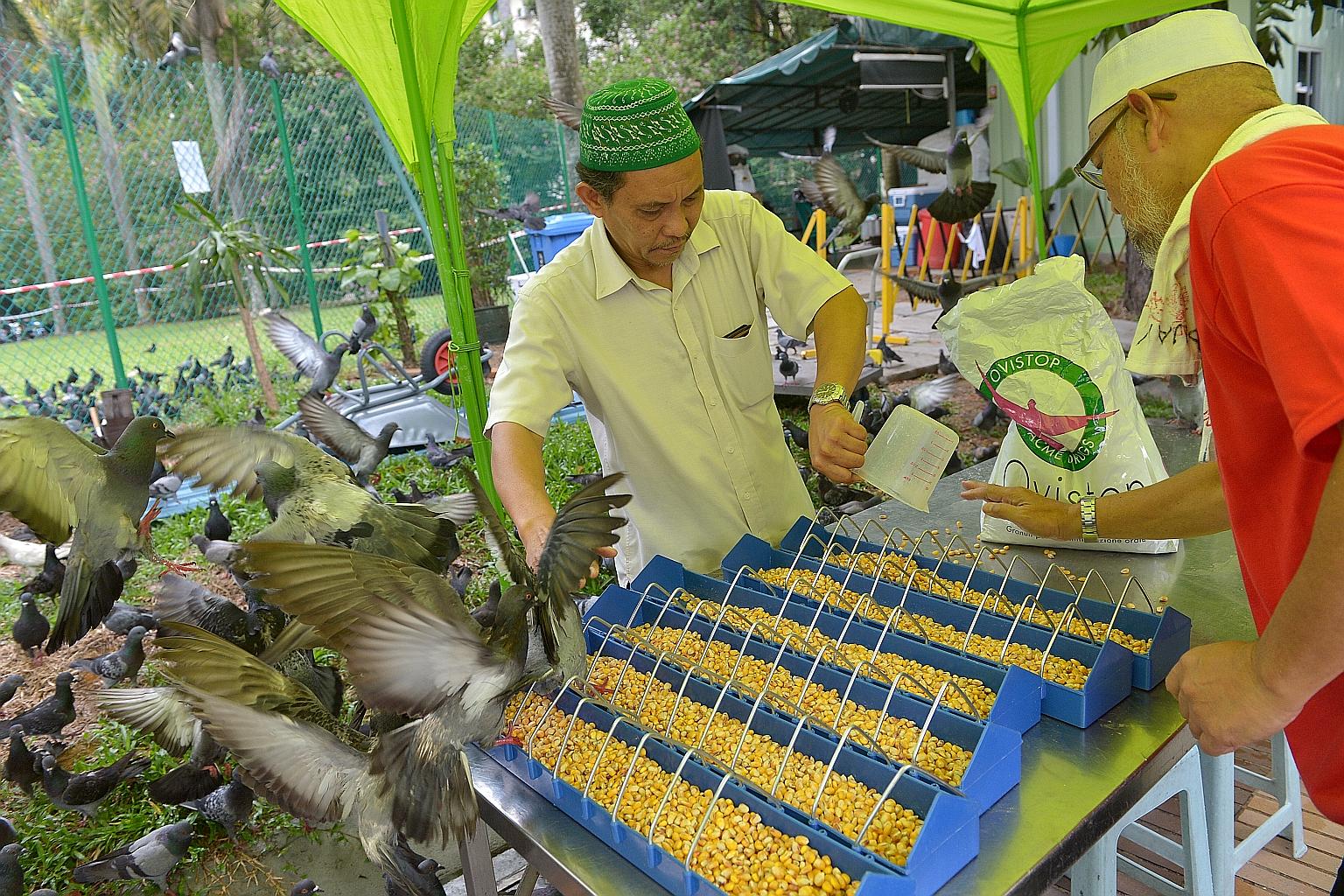Drug trial by AVA to curb pigeon population
'Birth control' drug curbs egg production or causes females to lay eggs that do not hatch
Sign up now: Get ST's newsletters delivered to your inbox

Mosque volunteer Samad Ismail (left) and mosque caretaker Hj Sapuan Abdul Wahab pouring the corn-based feed, which contains the drug nicarbazin, out for the pigeons.
ST PHOTO: JAMIE KOH
Pigeons that congregate outside Masjid Haji Muhammad Salleh mosque have been getting an extra ingredient in their breakfast.
Every day, pigeons that flock to the area are served a corn-based feed containing a drug called nicarbazin, which stops the female birds from producing eggs or causes them to lay eggs that do not hatch.
This new "birth control" method to limit pigeon numbers is being tested by the Agri-Food and Veterinary Authority of Singapore (AVA) at a field outside the mosque in Palmer Road, near Shenton Way.
The trial, which started on Oct 13 and will last a year, comes on the back of soaring complaints about the nuisance caused by pigeons.
The AVA has already received about 3,400 pigeon-related feedback from January to October this year, more than the 2,500 received for the whole of last year and the 2,100 in 2013.
It has also seen a growth in feedback about all kinds of birds, including pigeons, from some 4,400 messages in 2013 to 6,100 in the first 10 months of this year alone.
Mr Mohamed Idris, secretary of the management board of Masjid Haji Muhammad Salleh, said pigeons have always been around, but the problem has worsened over the last 10 years.
The field outside the mosque has an estimated 400 pigeons, twice as many as two years ago.
The birds would fly into the mosque compounds, making them a nuisance to the staff and those who go to the mosque to pray.
"They leave their droppings on the floor and you walk on it... They congregate at the food areas as well," said Mr Mohamed.
This has led the AVA to choose the mosque as the first area to try out the new method.
During a demonstration yesterday, Ms Janet Chia, executive manager of the Operations (Wild Animals) section at AVA, said it will take about a year to see a drop in the pigeon population there.
Around five mosque volunteers will be in charge of feeding the laced feed to the pigeons. The method could be rolled out to other areas in Singapore if the trial succeeds.
When tested in Italy, the method was found to reduce the pigeon population in the test area by 30 per cent to 40 per cent over four years.
The drug does not harm the birds and is not toxic to animals or humans if taken in small amounts. It would take 40kg of the feed to see toxic effects in dogs and cats, and 60kg for a child, said Ms Chia.
She also urged the public not to feed birds, as this "would encourage their population size to grow and encourage them to congregate and cause nuisance".
Feeding pigeons is illegal and those found to have flouted the rules face a fine of up to $500. The AVA has caught 113 bird feeders so far this year, including 13 who did so outside the mosque.


